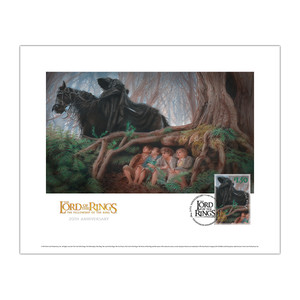This series of stamps celebrated the use of our natural resources – from Greenstone to Oamaru Stone, Pāua, Kauri, Flax and Ferns.
Issue information
New Zealand has a rich heritage of art from nature and New Zealand artists have continued to be surrounded with a wealth of natural materials and have become some of the most skilled in the world. Māori artists traditional and contemporary use of flax fibre and feathers to weave cloaks, felling trees to carve canoes and meeting houses and carving greenstone to create beautiful weapons and talisman and using of pāua shells for ornamentation in carvings has led to the development of an unique art indigenous to this country.
This uniquely New Zealand collection of stamps provided a wonderful portrait of our land and the people who live on it and also create from it. The simplicity of the designs, the vibrancy of the colours, the unusual block sets, reflected the true kiwi spirit and New Zealanders attachment to it through the land.
The use of raw, natural and well-known New Zealand resources gave these stamps a special significance for all of us, as do the symbols created from them. These materials are strongly connected to our national identity, and have been used by New Zealanders to create items of enduring beauty and versatility. Each stamp told the visual story of the raw material brought to life as a piece of art.
Unique to this issue were the blocks created for each denomination. They were made by using a 90 degree rotation of each stamp, creating a sense of what the completed work of art looked like. They recognised the patterns that occur naturally and which are so often duplicated in art.
Product Listing for Art from Nature
| Image | Title | Description | Price |
|---|---|---|---|
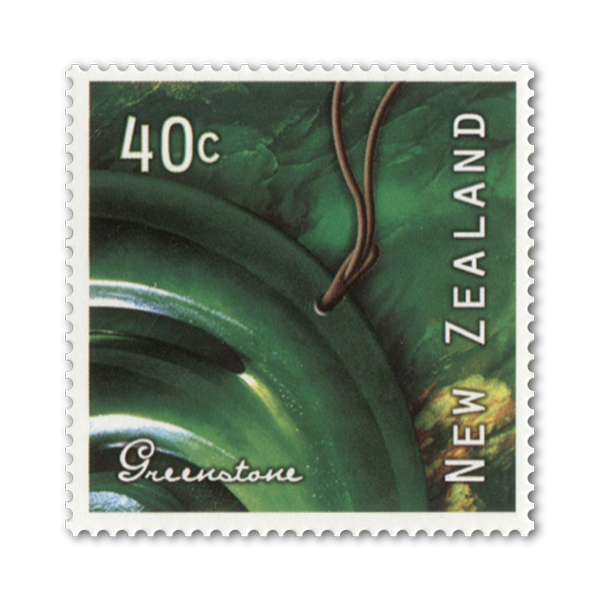 |
Single Stamp |
Single 40c 'Greenstone' gummed stamp. Greenstone or Pounamu is a type of jade found only on the West Coast of the South Island. It is renowned for its rich colours and high degree of translucency. It has long been highly prized by Māori and it is a very beautiful and very hard stone. Traditionally carved weapons such as mere were made and talismen such as hei-tiki and tools like chisels and axes. With modern cutting and polishing tools Māori artists have continued to produce beautiful pieces of art with complex designs and it continues to be regarded as a treasure of immense spiritual and material value. |
$0.40 |
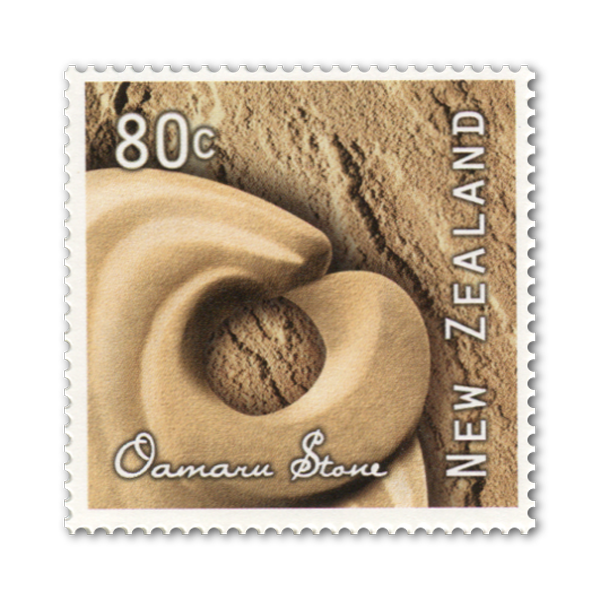 |
Single Stamp |
Single 80c 'Oamaru Stone' gummed stamp. Oamaru Stone is a type of limestone created from millions of millions of fragments of lace coral and microscopic skeletons of plankton and algae, all cemented together to form a reasonably dense mass and it can be compared with the finest in the world. It has been used as a building material since 1860 and can be found about six kilometres inland from the South Island town that gives it its name - Oamaru . Its excellence comes from the fine-grained, even texture and freedom from impurities and it is a very easy to work with a wide range of tools as the shaping is straightforward and allows the artist to produce their piece of work quite quickly. It has found favour with many of our nation’s sculptors. |
$0.80 |
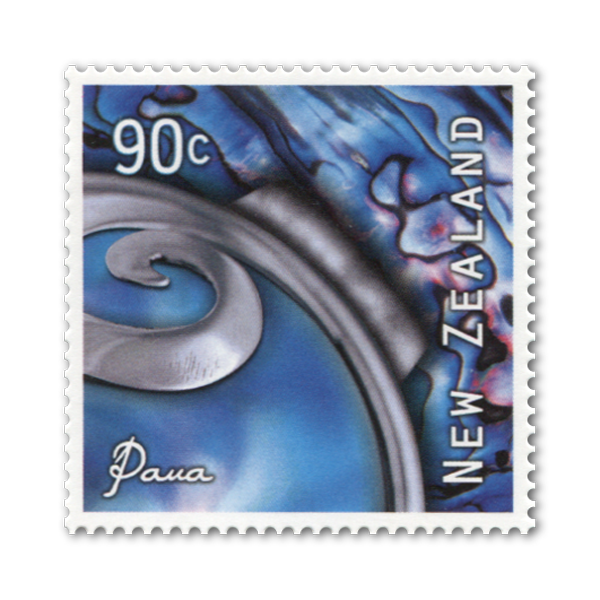 |
Single Stamp |
Single 90c 'Pāua' gummed stamp. Pāua shell comes from a shellfish unique to our waters, the pāua which is the largest and most abundant of the native abalone and it is most commonly found along the coast of the lower North Island. Pāua is distinct in that the inner nacreous layer of the shell is very brilliantly coloured. Iridescent peacock greens and blues, pinks and pearl shimmer on the surface. The polished shell has been used for many varied and decorative uses, from beautifully crafted jewellery to all manner of things usually present in tourist souvenir shops. It is unique and its intrinsic beauty is ever present and it has become a symbol of the nation. |
$0.90 |
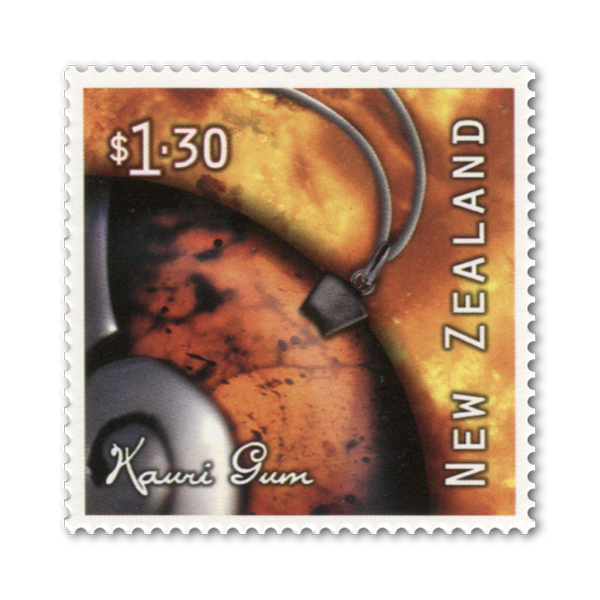 |
Single Stamp |
Single $1.30 'Kauri' gummed stamp. Kauri is a native tree and has long straight, branchless trunks which produced durable straight-grained timber. Gum is also produced from this beautiful tree and setters cleared vast areas of land of Kauri trees in Northland which left large tracts of exposed land that was mined for centuries old gum buried in the soil. The gum was highly prized for use in paints, varnishes and polishes. In modern times its resins is now used for jewellery. Craft jewellers have rediscovered the natural beauty, colours and translucence of the material and by enhancing it with carving and polishing have produced fine and highly sought after pieces. |
$1.30 |
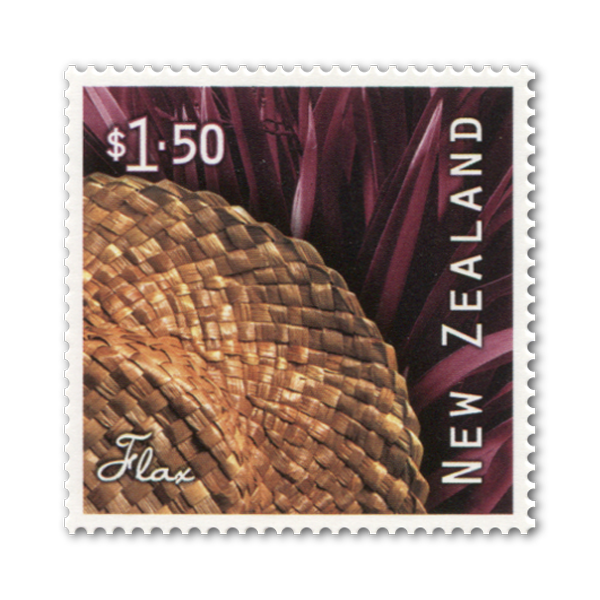 |
Single Stamp |
Single $1.50 'Flax' gummed stamp. Flax or harakeke is found throughout New Zealand. Phormium Tenax is the most common variety and it bears leaves that grow in fans up to 3.5 metres long and 5 to 12 centimetres wide and will grow in all sites but is plentiful in swampy areas. The plant was an all-purpose fibre for Māori and was used to make nets, baskets and mats. The fibre extracted from flax was used for fabrics, ropes and fishing lines. The art of crafting things from flax has been kept alive through generations by Māori. More and more craftspeople have explored the possibilities presented by this versatile material. The results have been spectacular and fabrics, handcrafted woven mats and baskets all made from flax are readily available. |
$1.50 |
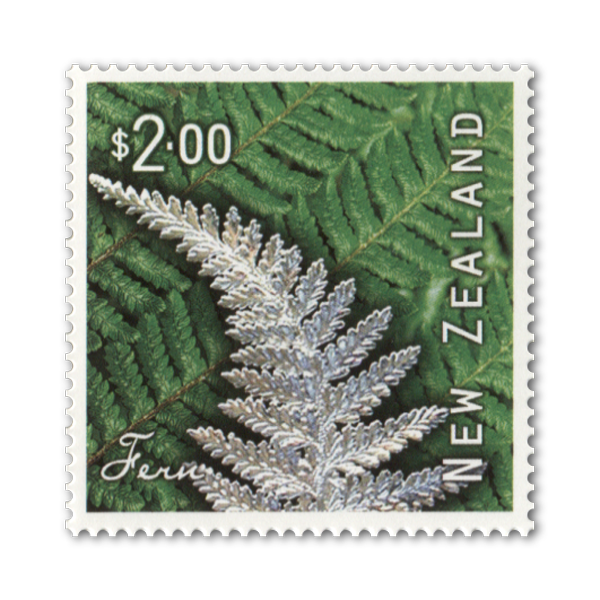 |
Single Stamp |
Single $2.00 'Fern' gummed stamp. There are about 180 species of fern in New Zealand and its shape has had a profound influence. Māori developed one of the most potent graphic images from it, the koru. The koru is found continually in Māori art, in carving and in weaving. An unfurling fern frond was used and continues to be used in kōwhaiwhai patterns in the rafters of meeting houses. As a symbol the koru is uniquely Māori. The fern has become a universally recognised New Zealand icon. Depicted on the stamp was a silver-dipped frond. The All Blacks wear it as an icon on their jerseys, our netballers are called the Silver Ferns. Our one day cricket team and our athletes wear it on their uniforms.The silver fern is a part of New Zealand’s identity, our people, our stories, our achievements and our place in the world. |
$2.00 |
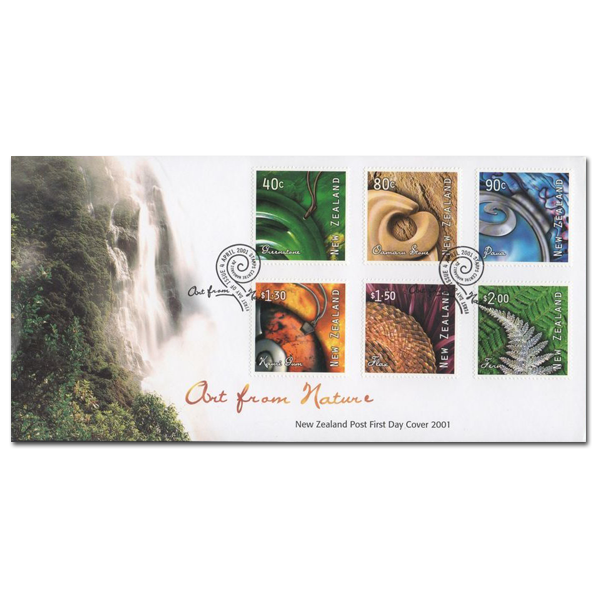 |
First Day Cover | First day cover with stamps affixed. Cancelled on the first day of issue. | $7.40 |
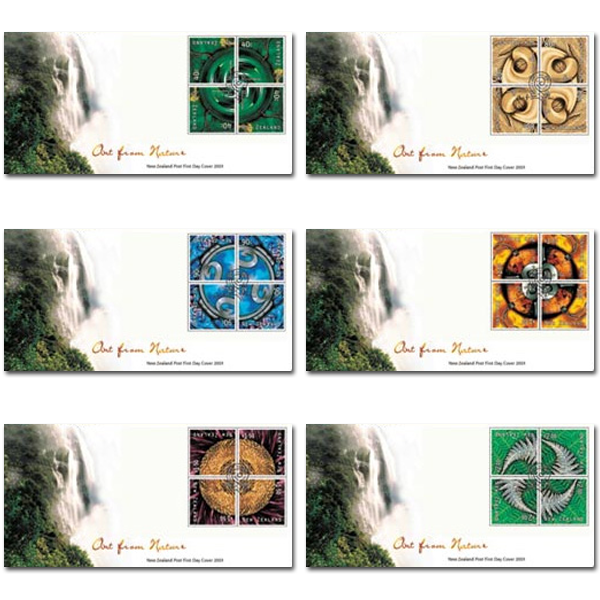 |
Set of First Day Covers | Set of six first day covers with a rotation block of four stamps affixed to each. Cancelled on the first day of issue. | $30.60 |
Technical information
| Date of issue: | 4 April 2001 |
|---|---|
| Number of stamps: | Six |
| Denominations and designs: | 40c Greenstone, 80c Oamaru stone, 90c Pāua, $1.30 Kauri, $1.50 Flax, $2.00 Fern |
| Stamps and first day cover designed by: | Cato Partners, Wellington, New Zealand |
| Printer and process: | Southern Colour Print, Dunedin, New Zealand by offset lithography |
| Number of colours: | Four process colours |
| Stamp size: | 35mm x 35mm |
| Paper type: | 103gsm De La Rue red phosphor coated |
| Number of stamps per sheet: | 25 |
| Perforation gauge: | 14.25 |
| Special blocks: | Plate/imprint blocks could be obtained by purchasing at least six stamps from a sheet. Barcode, value blocks and logo blocks could be obtained by purchasing at least two stamps from a sheet. Barcode blocks were available in A format only. |
| Rotation block: | 4 stamps in a block - each stamp rotated by 90 degrees. |
| Period of sale: | These stamps remained on sale until 3 April 2002. |


